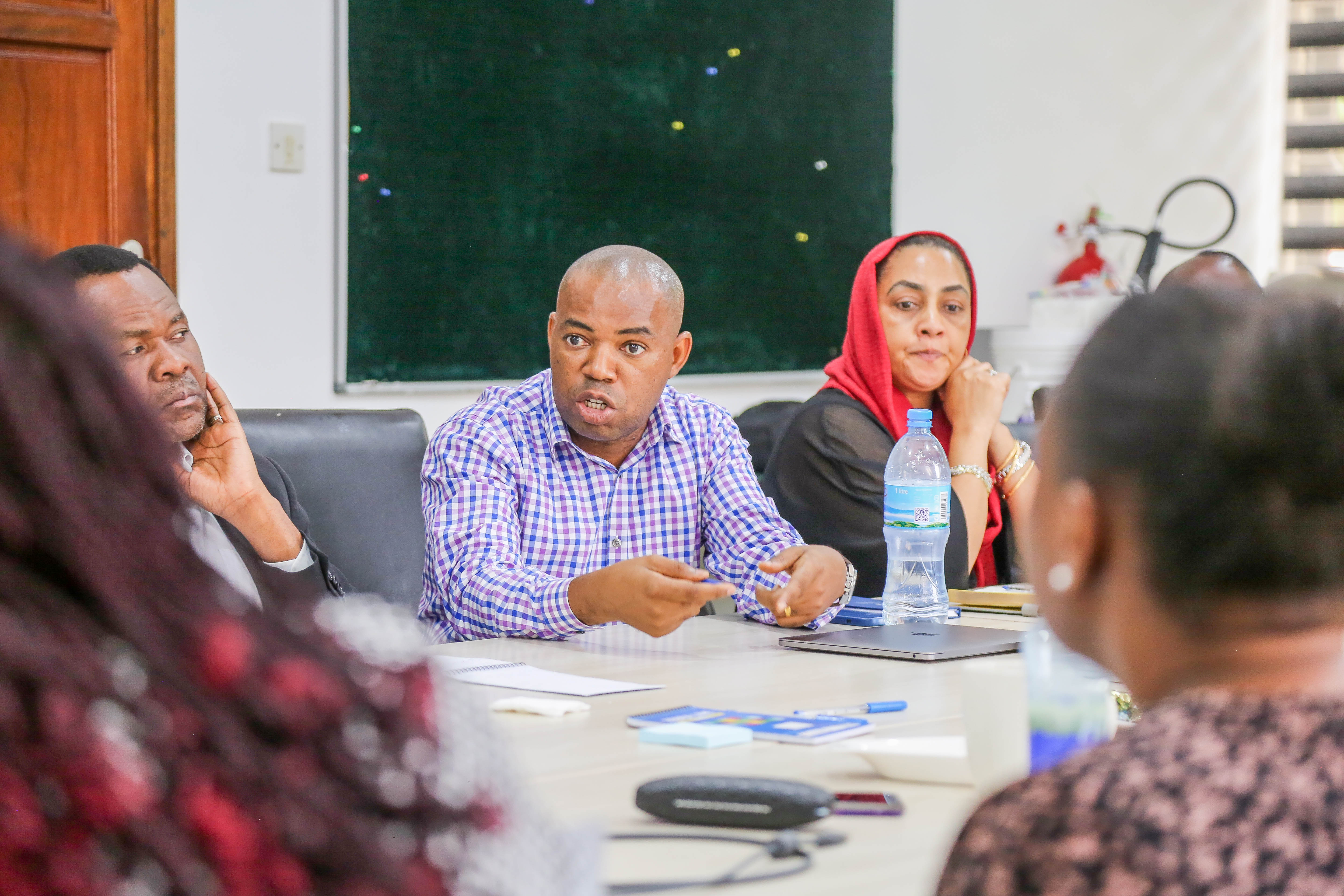
NEST360: Tz strategizes phase two of the program

On February 19, 2024, the NEST360 program, implemented by the Ifakara Health Institute and its partners in Tanzania, gathered to reflect on the successes of phase one and strategize for the upcoming phase two of the program.
Earlier this year, NEST360 announced the commencement of its second phase, backed by a substantial $65 million investment that will propel the initiative forward over the next five years. For more details, refer to the official announcement here.
Chairing the discussion was Ifakara's Director and NEST Country Lead, Honorati Masanja, who welcomed the multidisciplinary team to Ifakara's Mikocheni branch. The meeting was graced by the presence of special guests Rebecca Richards-Kortum and Maria Oden from Rice University, both Principal Investigators for NEST360, who were visiting various NEST360 project sites in Tanzania.
Attendees included Millicent Alooh, Regional Director of BMET implementation for NEST360, Dr. Felix Bundala, Assistant Director of Newborn, Child, and Adolescent Health in the Ministry of Health and Dr. Nahya Salim, the NEST360 Country & Clinical Lead.
Other representatives from the Ministry of Health and the President's Office – Regional Administration, and Local Government (PO-RALG) were also present, along with members of the Ifakara NEST360 team led by Senior Research Scientist and NEST360 Project Leader Donat Shamba.
Country Liaison, Catherine Paul, initiated the two- hour session by congratulating the team on the "successful" first phase, opening the floor for the team to delve into their achievements and collaborate on finding solutions to some of the challenges faced.
A strong emphasis was placed on the importance of collaborating with existing government plans to maximize impact by Dr. Bundala. He says “joining the government’s journey” is critical in ensuring harmony in addressing the gaps, be it in infrastructure, capacity building/strengthening or data.
The team highlighted a challenge in maintaining the newborn care devices provided to hospitals by the program. A call for advocacy was made to integrate biomedical technicians into the service provision value chain.
Hope Peter, a biomedical engineer within NEST360 at Ifakara, stressed that "highlighting the problem" will help stakeholders understand the important contributions of biomeds. Biomedical engineers play a critical role in addressing issues related to equipment functionality and maintenance.
In closing, Dr. Masanja stated, "We’ve done a good job in phase 1, and we are geared up for doing a good job in phase 2; we’ve got bigger numbers and goals, and the team is ready for that."
About NEST 360
Newborn Essential Solutions and Technologies (NEST360) is a global consortium committed to reducing newborn deaths by 50% in hospitals, currently conducted in Tanzania, Kenya, Malawi, and Nigeria. The program is an evidence-based model for sustainable health system change to close the gaps in technology, markets, and human resources for the implementation of quality hospital-based newborn care on a national scale.
In Tanzania, the NEST program works in close collaboration with the Ministry of Health, to improve the quality of comprehensive newborn care units as stipulated in the National guideline for neonatal care and the establishment of neonatal care units.
Phase I of the program started in late 2019 in three tertiary hospitals i.e., Muhimbili National Hospital (MNH Upanga), Muhimbili National Hospital (MNH Mloganzila) and Mbeya Zonal Referral Hospital. Implementation at Kilimanjaro Christian Medical Centre (KCMC) started in February 2022. The three regional referral hospitals in Dar es Salaam i.e., Mwananyamala, Amana and Temeke started implementation in 2020. The tertiary hospitals will be the ‘learning hubs’ to ensure mentorship and supportive supervision within the selected regions.
